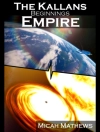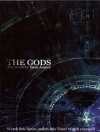H.G. Wells’ ‘The War of The Worlds’ is a groundbreaking work of science fiction that intricately combines narrative innovation with social commentary. Published in 1898, the novel explores the harrowing experience of Martian invasion in Edwardian England, employing a first-person narrative that vividly captures both the chaos of warfare and the fragility of human civilization. Wells masterfully uses a blend of realism and speculative fiction, reflecting the anxieties of the late Victorian era regarding imperialism, technology, and the unknown, thus solidifying its place within the cannon of speculative literature. H.G. Wells, often regarded as the father of science fiction, drew upon his background in biology and keen observations of society, which fueled his imagination for this apocalyptic tale. His early experiences in a rapidly industrializing England deeply influenced his thoughts on technological progress and its potential repercussions. Wells’ prolific career included a variety of genres, yet his fascination with cosmic perspectives and critical social issues prominently shaped ‘The War of The Worlds, ‘ making it not only a thrilling narrative but also a profound reflection on humanity. This compelling novel is a must-read for fans of science fiction and those interested in the broader implications of humanity’s technological advancements. With its rich prose and innovative storytelling, ‘The War of The Worlds’ will challenge readers to reflect on their own societal constructs while offering a riveting and thought-provoking journey into the realms of the possible.
About the author
H. G. Wells, born Herbert George Wells on September 21, 1866, in Kent, England, was a prolific writer who became one of the pioneers of science fiction literature. With a career spanning over fifty years, Wells used his work to explore the potential and perils of scientific advancements and social issues. Educated in the sciences at the Normal School of Science in London, Wells was influenced by the ideas of Charles Darwin and Thomas Huxley. Wells’s imaginative faculty combined with his scientific background, gave rise to ground-breaking novels that remain cornerstones of the genre. ‘The War of the Worlds’ (1898), his seminal work, not only cemented his status as a pre-eminent author but is also credited with laying the foundation for later alien invasion narratives. This science fiction classic utilizes the theme of planetary invasion to reflect on the human condition and societal structures. Wells’s narrative style often included vivid descriptions, complex characters, and heady ideological debates, allowing readers to delve into both an entertaining storyline and a deeper philosophical context. H. G. Wells’s influence extends beyond literature into the realms of social and political thought, marking him as a multidimensional figure in British letters. His career comprises other notable works such as ‘The Time Machine’ (1895), ‘The Invisible Man’ (1897), and ‘The Island of Doctor Moreau’ (1896). Wells’s work not only entertained but also posed significant questions about morality, progress, and the very fabric of reality, questions that continue to challenge and inspire to this day. Wells passed away on August 13, 1946, leaving behind a legacy that endures in the intellectual and imaginative landscape.












